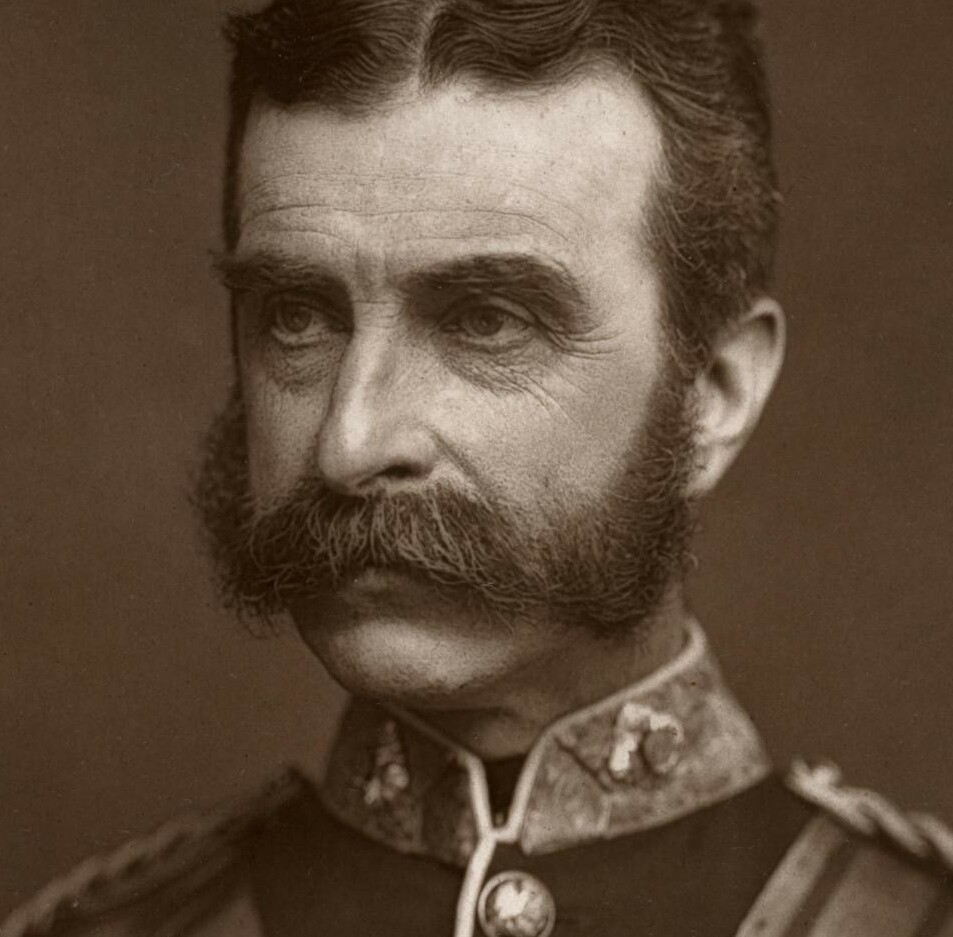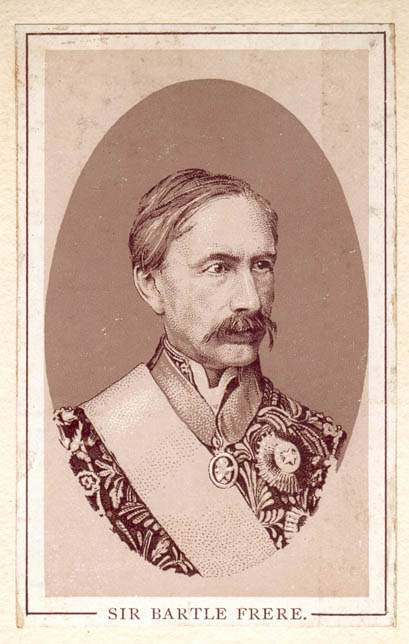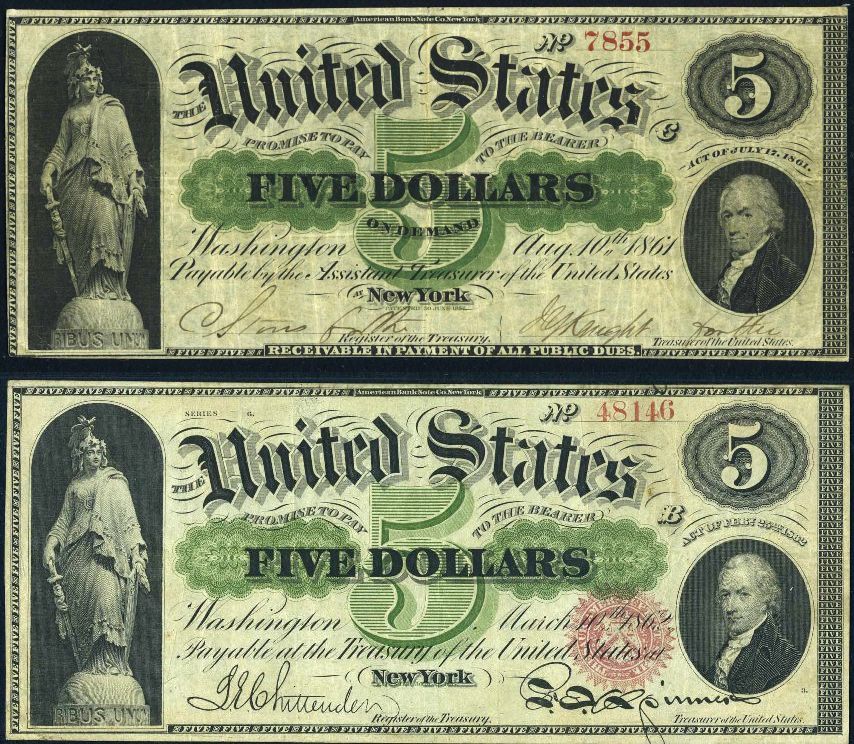|
1879
Events January * January 1 ** The Specie Resumption Act takes effect. The United States Note is valued the same as gold, for the first time since the American Civil War. ** Brahms' Violin Concerto is premiered in Leipzig with Joseph Joachim as soloist and the composer conducting. * January 11 – The Anglo-Zulu War begins. * January 22 – Anglo-Zulu War – Battle of Isandlwana: A force of 1,200 British soldiers is wiped out by over 20,000 Zulu warriors. * January 23 – Anglo-Zulu War – Battle of Rorke's Drift: Following the previous day's defeat, a smaller British force of 140 successfully repels an attack by 4,000 Zulus. February * February 3 – Mosley Street in Newcastle upon Tyne (England) becomes the world's first public highway to be lit by the electric incandescent light bulb invented by Joseph Swan. * February 8 – At a meeting of the Royal Canadian Institute, engineer and inventor Sandford Fleming first proposes the global adoptio ... [...More Info...] [...Related Items...] OR: [Wikipedia] [Google] [Baidu] |
Battle Of Isandlwana
The Battle of Isandlwana (alternative spelling: Isandhlwana) on 22 January 1879 was the first major encounter in the Anglo-Zulu War between the British Empire and the Zulu Kingdom. Eleven days after the British invaded the Zulu Kingdom, Zululand Empire in Southern Africa, a Zulu force of some 20,000 warriors attacked a portion of the British main column consisting of approximately 1,800 British, colonial and native troops with approximately 350 civilians. The Zulus were equipped mainly with the traditional assegai iron spears and cow-hide shields, but also had a number of muskets and antiquated rifles.Smith-Dorrien, Chapter 1B "It was a marvellous sight, line upon line of men in slightly extended order, one behind the other, firing as they came along, for ''a few of them had firearms'', bearing all before them." eyewitness account, emphasis added The British and colonial troops were armed with the modern Martini–Henry breechloader, breechloading rifle and two RML 7-pounder moun ... [...More Info...] [...Related Items...] OR: [Wikipedia] [Google] [Baidu] |
Anglo-Zulu War
The Anglo-Zulu War was fought in present-day South Africa from January to early July 1879 between forces of the British Empire and the Zulu Kingdom. Two famous battles of the war were the Zulu victory at Battle of Isandlwana, Isandlwana and the British defence at Battle of Rorke's Drift, Rorke's Drift. Following the passing of the British North America Act 1867 forming a federation in Canada, Henry Herbert, 4th Earl of Carnarvon, Lord Carnarvon thought that a similar political effort, coupled with military campaigns, might lead to a ruling white minority over a black majority in South Africa. This would yield a large pool of cheap labour for the British sugar plantations and mines, and was intended to bring the African Kingdoms, tribal areas, and Boer republics into South Africa. In 1874, Sir Henry Bartle Frere, Bartle Frere was appointed as British High Commissioner for Southern Africa to effect such plans. Among the obstacles were the armed independent states of the South ... [...More Info...] [...Related Items...] OR: [Wikipedia] [Google] [Baidu] |
Battle Of Rorke's Drift
The Battle of Rorke's Drift, also known as the Defence of Rorke's Drift, was an engagement in the Anglo-Zulu War. The successful British defence of the mission station of Rorke's Drift, under the command of Lieutenants John Chard of the Royal Engineers and Gonville Bromhead of the 24th Regiment of Foot, began once a large contingent of Zulu warriors broke off from the main force during the final hour of the British defeat at the day-long Battle of Isandlwana on 22 January 1879. They travelled to attack Rorke's Drift later that day and continuing into the following day. Just over 150 British and colonial troops defended the station against attacks by 3,000 to 4,000 Zulu warriors. The massive but piecemeal attacks by the Zulu on Rorke's Drift came very close to overwhelming the much smaller garrison, but were consistently repelled. Eleven Victoria Crosses were awarded to individual defenders, along with a number of other decorations and honours. Prelude Rorke's Drift, known ... [...More Info...] [...Related Items...] OR: [Wikipedia] [Google] [Baidu] |
Ryukyu Domain
The was a short-lived domain of the Empire of Japan, lasting from 1872 to 1879, and simultaneously a tributary state of the Qing Empire, until 1875, before being fully incorporated into Japan as the current Okinawa Prefecture and other islands at the Pacific edge of the East China Sea. When the domain was created in 1872, Japan's feudal han system had developed in unique ways. The domain was a political and economic abstraction based on periodic cadastral surveys and projected agricultural yields. In other words, the domain was defined in terms of '' kokudaka'', not land area. This was different from the feudalism of the West. History In 1609, the invasion of Ryukyu caused a change in the relationship of the island nation and Japan. After 1609, the Ryukyuan kings were forced to be vassals of the Shimazu clan of Satsuma and the islands were occasionally viewed as a province of Japan. At the same time, the kingdom and its rulers remained carefully independent, and als ... [...More Info...] [...Related Items...] OR: [Wikipedia] [Google] [Baidu] |
Incandescent Light Bulb
An incandescent light bulb, also known as an incandescent lamp or incandescent light globe, is an electric light that produces illumination by Joule heating a #Filament, filament until it incandescence, glows. The filament is enclosed in a glass bulb that is either vacuum, evacuated or filled with inert gas to protect the filament from oxidation. Electric current is supplied to the filament by terminals or wires embedded in the glass. A bulb socket provides mechanical support and electrical connections. Incandescent bulbs are manufactured in a wide range of sizes, light output, and voltage ratings, from 1.5 volts to about 300 volts. They require no external Regulator (automatic control), regulating equipment, have low manufacturing costs, and work equally well on either alternating current or direct current. As a result, the incandescent bulb became widely used in household and commercial lighting, for portable lighting such as table lamps, car headlamps, and flashlights, an ... [...More Info...] [...Related Items...] OR: [Wikipedia] [Google] [Baidu] |
United States Geological Survey
The United States Geological Survey (USGS), founded as the Geological Survey, is an agency of the U.S. Department of the Interior whose work spans the disciplines of biology, geography, geology, and hydrology. The agency was founded on March 3, 1879, to study the landscape of the United States, its natural resources, and the natural hazards that threaten it. The agency also makes maps of planets and moons, based on data from U.S. space probes. The sole scientific agency of the U.S. Department of the Interior, USGS is a fact-finding research organization with no regulatory responsibility. It is headquartered in Reston, Virginia, with major offices near Lakewood, Colorado; at the Denver Federal Center; and in NASA Research Park in California. In 2009, it employed about 8,670 people. The current motto of the USGS, in use since August 1997, is "science for a changing world". The agency's previous slogan, adopted on its hundredth anniversary, was "Earth Science in the Pub ... [...More Info...] [...Related Items...] OR: [Wikipedia] [Google] [Baidu] |
Shō Tai
was the final King of Ryukyu, initially as Second Shō dynasty, hereditary king of the Tributary system of China#Ryukyu Kingdom, Qing tributary Ryukyu Kingdom from 8 June 1848 until 10 October 1872 and finally as the Empire of Japan, Japanese appointed Ryukyu Domain, Domain King by Emperor Meiji, ultimately leading to his Ryukyu Disposition, deposition and relocation to Tokyo by the Government of Meiji Japan, Meiji Government on 11 March 1879. In May 1885, in compensation, he was made a ''Kōshaku'' (, marquess), the second tier of nobility in the Kazoku, ''kazoku'' peerage system. This entitled him to a hereditary seat in the House of Peers (Japan), House of Peers as well as a stipend from the government. Overall, his reign saw the eradication of the dual-loyalty system of the supposedly independent Ryukyuan kingdom in favour of the Japanese rather than that of the Qing dynasty or the Satsuma Domain specifically, and the annexation of Ryukyu into Okinawa Prefecture. His time a ... [...More Info...] [...Related Items...] OR: [Wikipedia] [Google] [Baidu] |
January 22
Events Pre-1600 * 613 – Eight-month-old Heraclius Constantine is crowned as co-emperor ('' Caesar'') by his father Heraclius at Constantinople. * 871 – Battle of Basing: The West Saxons led by King Æthelred I are defeated by the Danelaw Vikings at Basing. * 1506 – The first contingent of 150 Swiss Guards arrives at the Vatican. * 1517 – The Ottoman Empire under Selim I defeats the Mamluk Sultanate and captures present-day Egypt at the Battle of Ridaniya. * 1555 – The Ava Kingdom falls to the Taungoo Dynasty in what is now Myanmar. 1601–1900 * 1689 – The Convention Parliament convenes to determine whether James II and VII, the last Roman Catholic monarch of England, Ireland and Scotland, had vacated the thrones of England and Ireland when he fled to France in 1688. * 1808 – The Portuguese royal family arrives in Brazil after fleeing the French army's invasion of Portugal two months earlier. * 1849 – Secon ... [...More Info...] [...Related Items...] OR: [Wikipedia] [Google] [Baidu] |
United States Note
A United States Note, also known as a Legal Tender Note, is a type of Banknote, paper money that was issued from 1862 to 1971 in the United States. Having been current for 109 years, they were issued for longer than any other form of U.S. paper money other than the currently issued Federal Reserve Note. They were known popularly as "greenbacks", a name inherited from the earlier Greenback (1860s money), greenbacks, the Demand Notes, that they replaced in 1862. Often termed Legal Tender Notes, they were named United States Notes by the First Legal Tender Act, which authorized them as a form of fiat currency. During the early 1860s the so-called ''second obligation'' on the reverse of the notes stated: By the 1930s, this obligation would eventually be shortened to: They were originally issued directly into circulation by the United States Department of the Treasury, U.S. Treasury to pay expenses incurred by the Union (American Civil War), Union during the American Civil War. ... [...More Info...] [...Related Items...] OR: [Wikipedia] [Google] [Baidu] |
March 11
Events Pre-1600 * 843 – Triumph of Orthodoxy: Empress Theodora II restores the veneration of icons in the Orthodox churches in the Byzantine Empire. * 1343 – Arnošt of Pardubice becomes the last Bishop of Prague (3 March 1343 O.S.), and, a year later, the first Archbishop of Prague. * 1387 – Battle of Castagnaro: Padua, led by John Hawkwood, is victorious over Giovanni Ordelaffi of Verona. 1601–1900 * 1641 – Guaraní forces living in the Jesuit reductions defeat bandeirantes loyal to the Portuguese Empire at the Battle of Mbororé in present-day Panambí, Argentina. * 1649 – The Frondeurs and the French government sign the Peace of Rueil. * 1702 – '' The Daily Courant'', England's first national daily newspaper, is published for the first time. * 1708 – Queen Anne withholds Royal Assent from the Scottish Militia Bill, the last time a British monarch vetoes legislation. * 1784 – The signing of the Treaty o ... [...More Info...] [...Related Items...] OR: [Wikipedia] [Google] [Baidu] |
Joseph Joachim
Joseph Joachim (28 June 1831 – 15 August 1907) was a Hungarian Violin, violinist, Conducting, conductor, composer and teacher who made an international career, based in Hanover and Berlin. A close collaborator of Johannes Brahms, he is widely regarded as one of the most significant violinists of the 19th century. Joachim studied violin early, beginning in Buda at age five, then in Vienna and Leipzig. He made his debut in London in 1844, playing Ludwig van Beethoven's Violin Concerto (Beethoven), Violin Concerto, with Felix Mendelssohn conducting. He returned to London many times throughout life. After years of teaching at the Leipzig Conservatory and playing as principal violinist of the Gewandhausorchester, he moved to Weimar in 1848, where Franz Liszt established cultural life. From 1852, Joachim served at the court of Hanover, playing principal violin in the opera and conducting concerts, with months of free time in summer for concert tours. In 1853, he was invited by Robert ... [...More Info...] [...Related Items...] OR: [Wikipedia] [Google] [Baidu] |
February 8
Events Pre-1600 * 421 – Constantius III becomes co-emperor of the Western Roman Empire. * 1238 – The Mongols burn the Russian city of Vladimir. * 1250 – Seventh Crusade: Crusaders engage Ayyubid forces in the Battle of Al Mansurah. * 1347 – The Byzantine civil war of 1341–47 ends with a power-sharing agreement between John VI Kantakouzenos and John V Palaiologos. * 1587 – Mary, Queen of Scots is executed on suspicion of having been involved in the Babington Plot to murder her cousin, Queen Elizabeth I. 1601–1900 *1601 – Robert Devereux, 2nd Earl of Essex, unsuccessfully rebels against Queen Elizabeth I. * 1693 – The College of William & Mary in Williamsburg, Virginia, the second-oldest institution of higher education in the Thirteen Colonies, is granted a charter by King William III and Queen Mary II. * 1807 – Napoleon defeats the coalition forces of Russian General Bennigsen and Prussian General L'Esto ... [...More Info...] [...Related Items...] OR: [Wikipedia] [Google] [Baidu] |







